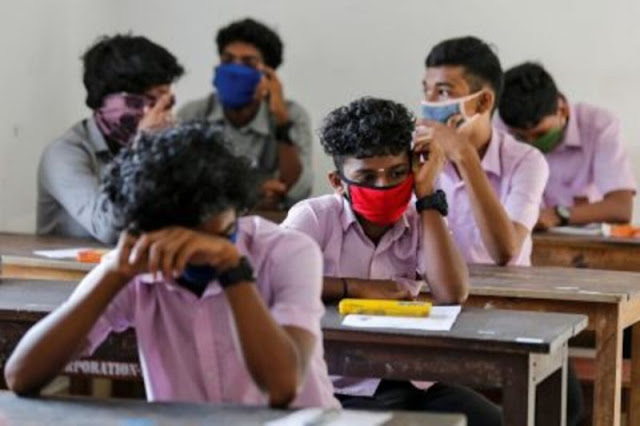Studying Shayara Bano's case....
Triple
Talaq : Bad in Law
In recent verdict of Shayara Bano v.
Union of India and Ors1 Hon’ble Supreme Court has scrutinized the constitutional validity of Talaq-e-biddat
(Triple Talaq) wherein by majority of 3:2 the practice of Talaq-e-biddat
has been set aside. The issue before the Hon’ble Supreme Court was whether
practice of Triple Talaq as practiced amongst Hanafi sect of Sunni Muslims in
India is ultra vires the Fundamental Rights enshrined in Indian Constitution.
The main contention of the petitioner was that such practice of Triple Talaq
violates Articles 14, 15(1) and 21. Whereas respondents contended judicial
intervention should be limited in the matters pertaining to personal laws. Also
Section 2 of Muslim
Personal Law (Shariat) Application Act, 1937 was in
challenge. This article is an attempt to flash light on the said judgment with
certain other relevant material.
Among
Muslims in India mainly three modes of Talaq / Divorce are found viz.
Talaq-e-ahasan, Talaq-e-hasan & Talaq-e-biddat. Former two modes are
generally considered as reasonable but talaq-e-biddat has always been issue of
conflict. As we know although Schedule VII2 prescribes field to
legislate concurrently upon subjects involving marriage and divorce of course
subject to personal law; no codified law is seen in the aspect of triple talaq
or other forms of talaq. What remains is the judicial determinations about the
said subject.
It is necessary to mention the famous comment
of Batchelor J. in Sarabai v. Rabiabai3
that triple talaq is good in law though bad in theology. This was the case
where the practice of triple talaq could have been veiled. Sarabai’s case was criticized
by Gauhati High Court in Jiauddin Ahmed v. Anwara Begum4,
wherein
Baharul Islam J. mentioned that the
observation of Batchelor, J. that "the
whimsical and capricious divorce by the husband is good in law,though bad in
theology". These observations have been based on the concept that women
were chattal belonging to men, which the Holy Quran does not brook.
In Jiauddin Ahmed’s
case two prerequisite conditions were laid down for talaq-e-biddat viz. i) talaq must be for a reasonable cause; and ii) talaq must
be preceded by attempts at reconciliation between the husband and the wife by
two arbiters-one from the wife's family the other from the husband's. If the
attempts fail, talaq may be effected.
Shayara
Bano’s case is perfect example of saying that law is not static and it keeps
changing with the changing needs of society. It was contended in this case that
triple talaq can be removed as means of social welfare and reform under Art
25(2) by the legislature. Minority judgment delivered by Khehar CJ. and Nazeer
throws light on detailed submissions made by the parties and also relevant useful
material including comparative study of triple talaq. Their lordships felt that
judiciary should not interfere in this matter which also impressed me as
naturally it was former part out of 3 judgments. It is doubtful whether Article
142 could have been invoked in the present case which is also mentioned by
Kurian J. that whether the exercise of a
Fundamental Right can be injuncted by invoking Article 142.
In his judgment Kurian J. opined that issue has already been settled in Shamim
Ara’s case5 and it is already a law declared as per Article 141 of
the Constitution. Nariman J. writing for himself and Lalit J. touches various
aspects and ultimately found practice of talaq-e-biddat is manifestly arbitrary
and violative of the fundamental rights contained in Art 14. Further they
examined whether the practice of triple talaq is essential religious practice
as the same is protected under Article 25.6 It was tested on the
touchstone of degrees of obedience wherein they found practice of triple
talaq falling under either in third or
fourth category which can be said to be a
permissible action as to which religion is indifferent and therefore they
opined practice of triple talaq forms no part of Article 25(1). Nariman J. has
also elaborately discussed Doctrine of arbitrariness and hold McDowell’s7
judgment as per incuriam which had held enactments cannot be
struck down by saying it arbitrary and unreasonable. After careful scrutiny
with all relevant cases it also has been declared that all judgments following
McDowell case are no longer good law. Justice Nariman had represented the petitioner
in McDowell case.
In my opinion issue of triple talaq has posed certain important questions which need
to be solved considering present socio-economic scenario of the country. After long
period of time from enactment of Constitution such dictums are ensuring equality
amongst different strata of the society. Still I feel it necessary to test
nature and applicability of personal laws prevailing in our country with emerging
social needs and problems. I feel revisiting the case of Narasu Appa Mali8
would be helpful to establish correct position of personal laws vis-à-vis Article
13. Also herculean task to codify Muslim law keeping personal law intact (as required
by Entry 5 List III Schedule VII) is necessary. Some governing provisions would
be helpful if codified within four walls
of Constitution. Hon’ble Supreme Court again has been proved as sentinel of Fundamental
Rights.
1. Shayara Bano v. Union of India and Ors. ;
2. Constitution of India - Schedule
VII, List III, Entry 5;
3. Sarabai v. Rabiabai - ILR 30
Bom 537;
4. Jiauddin Ahmed v. Anwara Begum
(1981) 1 Gau. L.R. 358;
5. Shamim Ara v. State of UP
and Anr. (2002) 7 SCC 18;
6. Commissioner of Police v.
Acharya Jagdishwarananda Avadhuta
2004(12)SCC
770;
7. State of Andhra Pradesh v.
McDowell & Co.;
8. State of Bombay v. Narasu
Appa Mali AIR 1952 Bom 84


Comments
Post a Comment